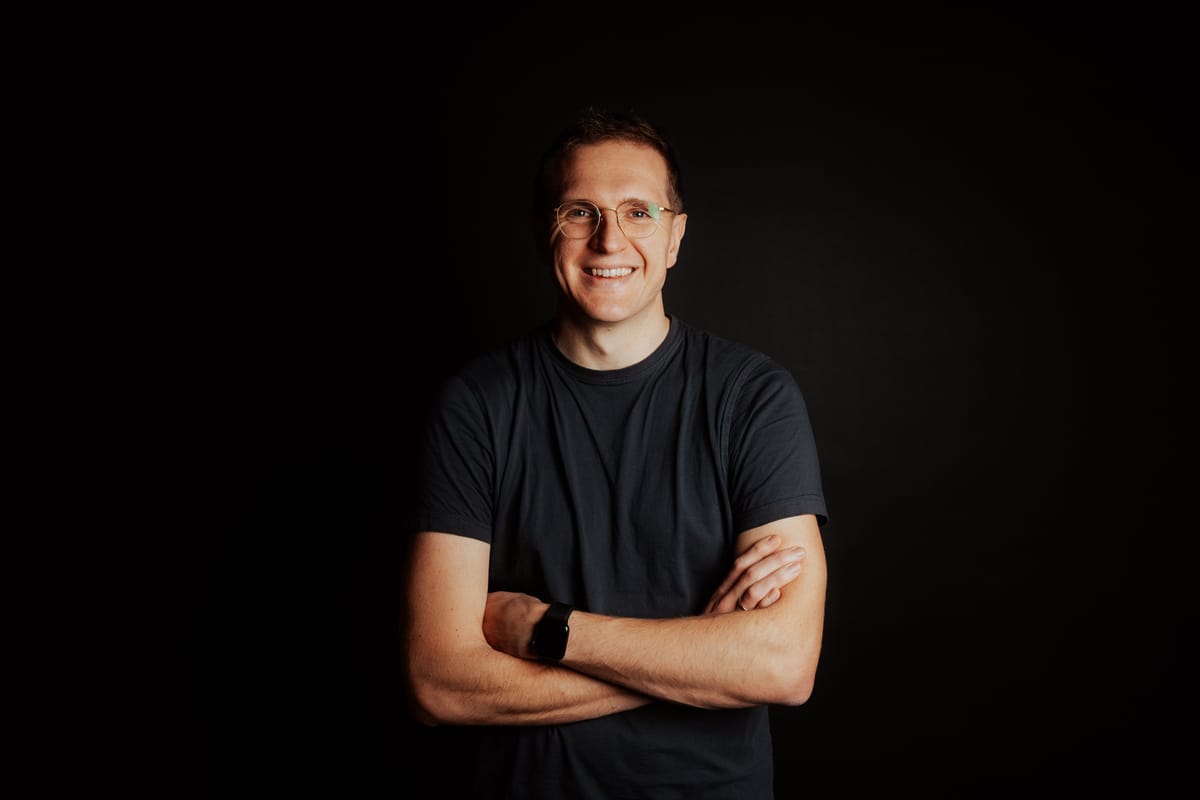What you'll learn:
Why the popular "bounce back" metaphor is sabotaging your ability to handle life's challenges effectively
How physical, mental, and relational foundations create elastic resilience that adapts rather than resists
A simple three-pillar practice to build authentic resilience through daily rituals rather than crisis management
The Story: When Success Becomes Survival
Two separate conversations over the past month shattered my assumptions about resilience and success. Both involved entrepreneurs in the final stages of selling their companies - huge deals that would mark what everyone around them considered triumph.
The first founder called me during his due diligence phase. On paper, everything looked incredible: seven-figure exit, industry recognition, team celebrating. But his voice told a different story. "I can't do this much longer," he confessed. "I'm selling because I'm breaking, not because I'm winning."
The second conversation happened three weeks later. Different industry, different timeline, but eerily similar words: "Everyone thinks I'm selling at the peak, but honestly? I'm selling before I completely fall apart."
Both of these highly successful individuals had subscribed to what I realized is a fundamentally flawed model of resilience: the "rock in the river" approach. They believed that strength meant standing firm against every current, resisting every wave, bouncing back to exactly where they started after each challenge.
Instead of building elastic resilience, they had built rigid resistance. And rigid things, no matter how strong, eventually break under enough pressure.
This got me thinking about my own relationship with resilience. For years, I too bought into the lone wolf mythology - the idea that true strength meant handling everything solo, that asking for help was weakness, that resilience meant being unbreakable rather than being adaptable.
I was wrong. And so is most of what we're taught about resilience.
The Insight: Elastic Resilience Over Rigid Resistance
The entrepreneurs I spoke with weren't failing because they weren't strong enough. They were failing because they were trying to be the wrong kind of strong. They were trying to be rocks when they needed to be trees.
Think about it: a massive oak tree can withstand hurricane-force winds not because it's rigid, but because it's elastic. It bends, it sways, it adapts to the forces around it while maintaining its core structure. Meanwhile, the seemingly stronger concrete structure next to it cracks and crumbles under the same conditions.
This is what I dub elastic resilience - the ability to bend without breaking, to adapt without losing your essence, to bounce forward rather than bounce back.
And this is what elastic resilience looks like in practice:
Physical Foundation: Your body is your resilience baseline. Without proper sleep, nutrition, and movement, your nervous system operates in a constant threat mode. No amount of mental toughness can compensate for a dysregulated nervous system. As the father of a toddler, I know that not everyone is in complete control of our sleep schedule. When I read advice columns arguing to “sleep more,” it can be frustrating. My sleep is often short and of low quality. So, I’ve learned to focus on what I can indeed control. In my case, that means going to bed earlier, because I have to expect interruptions. In the same way, I’ve moved my workouts into my lunch break - often at the expense of shared lunches. (If you ever wonder why I seem so asocial and rarely want to meet for lunch, I can assure you it’s not you - I’m just trying to exercise!)
Thanks to my wife Jessie’s initiative and research, we completely rewired our diet and started a supplement regime. At the risk of jinxing it, I have to say: we became significantly less sick as a result. Since so many people are interested in supplements for stress and resilience, I want to share what has worked for my family:
Every Foods for healthy, vegetarian frozen lunches with good portion sizes (a lifesaver when I have little time - use code VEGGIES-JULIUS),
mybacs for gut health and our immune systems (use code Julius25), and
edubily eduone for basic supplementation.
Mental Processing: Elastic resilience requires regularly processing experiences rather than accumulating them. This means journaling, meditation, therapy, or whatever practice helps you metabolize your challenges instead of storing them as unresolved tension.
Relational Support: The lone wolf approach isn't just ineffective - it's actively harmful. Resilience is a team sport. We need people to help us process, to provide perspective, to carry us when we can't carry ourselves.
These three elements work together to create what I named "equanimity under pressure"-the ability to maintain your center while adapting to changing circumstances.
The goal isn't to bounce back to where you were before a challenge. That's impossible anyway - you're changed by every significant experience. The goal is to bounce forward to an equilibrium that incorporates what you've learned while maintaining your core values and identity.
Your Quick Win: The Three-Pillar Resilience Practice
Build your elastic resilience foundation with these three simple daily practices:
Physical Pillar: For the next week, focus on the part of your sleep you can control. For most of us, that's our bedtime. Go to bed 30-60 minutes earlier than you normally would. This single habit helps regulate your nervous system and provides the biological foundation for other resilience practices.
Mental Pillar: Spend 5 minutes each evening writing down three things that challenged you that day and one thing you learned from each challenge. This simple practice helps your brain process experiences rather than accumulate stress. Don’t do this on your devices. Use pen & paper.
Relational Pillar: Reach out to one person in your network each day—not for anything specific, just to connect. This maintains your support network during calm periods so it's available during storms. This can be a simple voice note that you send while you’re on the way. It does not have to take a lot of time.
The power isn't in doing these perfectly; it's in doing them consistently. Even on the days (especially on the days!) when you don't feel like it.
Remember: resilience isn't about being unbreakable. It's about being elastic enough to bend, adapt, and grow stronger through the process of change.
A Final Thought
There’s a reason I wanted to focus on this topic in this edition of the newsletter. My coaching framework, "Effective Entrepreneurship," rests on three pillars: Clarity, Leverage, and Resilience.
If I’m being honest with you, I’ve spent so much time teaching the first two that I’ve rarely spoken enough about the third. The stories I shared are a stark reminder that without resilience, our clarity becomes clouded and our leverage is useless. It’s the pillar that holds everything else together when the pressure mounts.
P.S.
On that note, I want to give a shout-out to my friend and fellow author, Dr. Christian Poensgen - just a genuine recommendation because I think he’s doing great work.
He recently opened up a 3 spots in his coaching program. If you're looking for support in navigating your own professional journey with more clarity and purpose, you might find it valuable.
From his page:
The Becoming Ultraproductive 1:1 coaching program is designed for executives, entrepreneurs and CEOs who are ready to make a meaningful investment in achieving sustainable peak performance and holistic well-being.
Have a great week!
— Julius
INTERESTED IN MORE OF MY WORK?
If you’ve made it this far, perhaps you’d be interested in my other writing and resources:
1. Most read all time: Why I Stopped Using OKRs
2. Most read Q2: Clarity, Leverage, Resilience: The Secret Sauce of High-Growth CEOs
3. New Cheat Sheets every month, full collection in this FOLDER. (20 in total)
Want to work with me as a Coach & Catalyst for your business? Schedule a call HERE. Available in Q3.
Bachmann Catalyst is a human-centric CEO advisory boutique. We specialize in guiding growth-stage CEOs through the most pivotal challenges at the intersection of strategy, funding, and leadership. By balancing business outcomes with team dynamics, we help leaders scale with clarity, confidence, and purpose.
If this email was forwarded, click HERE to subscribe to the newsletter.


